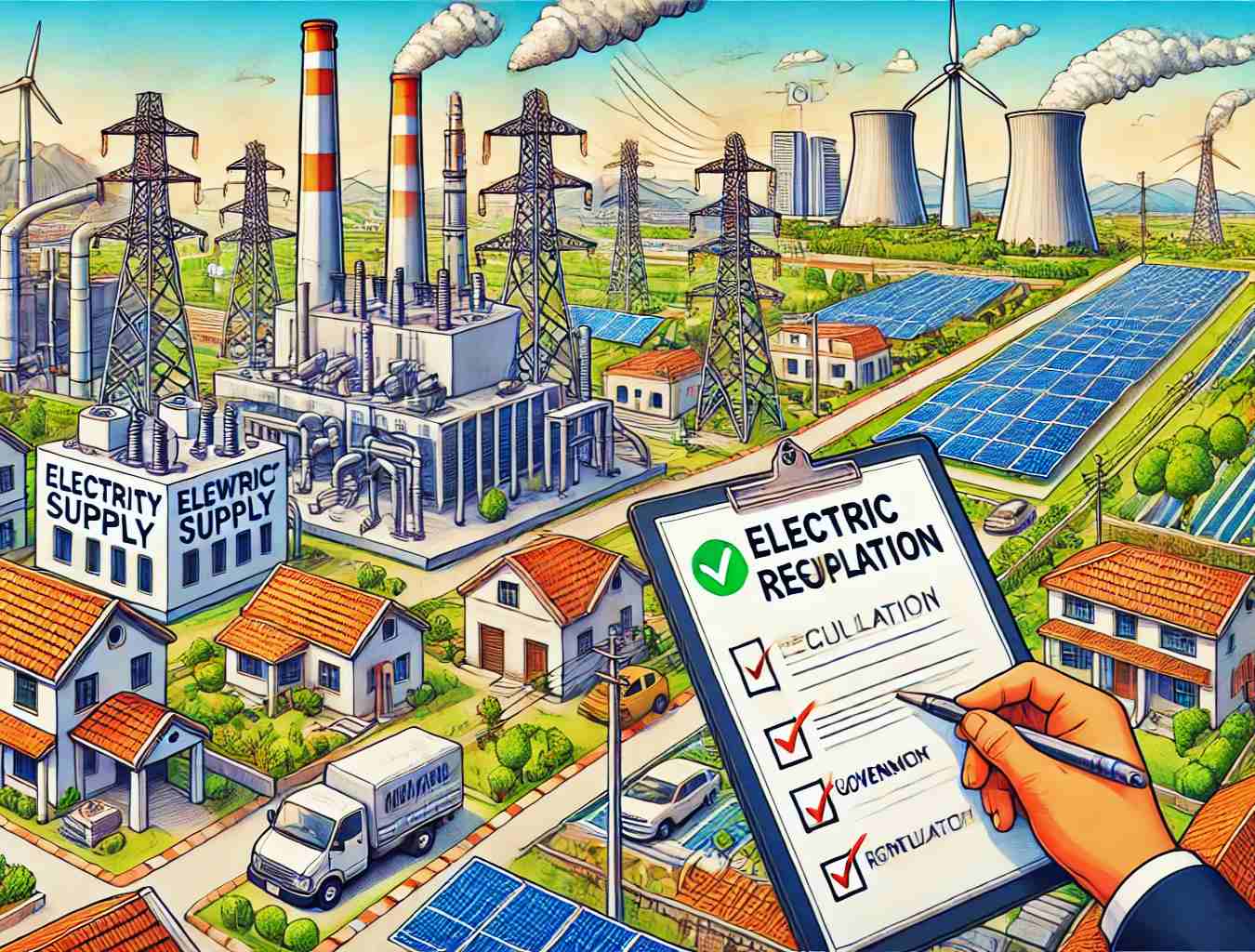
Electricity is an essential component of modern life, and the supply of power plays a pivotal role in the development of any nation. In Pakistan, electricity is generated, distributed, and regulated by a number of companies under the oversight of government institutions to ensure efficiency, reliability, and fair pricing. This article explores the electric supply and regulator companies in Pakistan and highlights the key electricity-related acts that shape the country's power sector.
Electric Supply Companies in Pakistan
The power distribution system in Pakistan is divided into various regional distribution companies. These companies are responsible for the supply of electricity to residential, commercial, and industrial sectors. The major electricity supply companies in Pakistan include:
1. WAPDA (Water and Power Development Authority)
Role: WAPDA was established in 1958 and is one of the main organizations involved in the generation and distribution of electricity in Pakistan. Over time, some of its functions have been transferred to other independent power distribution companies.
2. Lahore Electric Supply Company (LESCO)
Region Covered: Lahore, Kasur, Sheikhupura, and other surrounding areas.
Function: LESCO is responsible for the distribution of electricity in the central and eastern parts of Punjab, serving millions of consumers.
3. Islamabad Electric Supply Company (IESCO)
Region Covered: Islamabad, Rawalpindi, Attock, Chakwal, and Jhelum.
Function: IESCO is tasked with providing electricity to the capital territory and its adjoining regions.
4. Faisalabad Electric Supply Company (FESCO)
Region Covered: Faisalabad, Jhang, Sargodha, and other districts in Punjab.
Function: FESCO provides electricity to a large portion of the Punjab province.
5. Multan Electric Power Company (MEPCO)
Region Covered: Multan, Dera Ghazi Khan, Sahiwal, and several southern Punjab regions.
Function: MEPCO is responsible for the distribution of electricity to areas in southern Punjab.
6. K-Electric
Region Covered: Karachi and surrounding areas.
Function: K-Electric is a private company responsible for the distribution and generation of electricity in Karachi, Sindh. It has been the subject of privatization efforts and continues to play a crucial role in the city's power infrastructure.
7. Peshawar Electric Supply Company (PESCO)
Region Covered: Khyber Pakhtunkhwa (KP) province, including Peshawar, Mardan, Swat, and other districts.
Function: PESCO handles the electricity distribution in Khyber Pakhtunkhwa.
8. Quetta Electric Supply Company (QESCO)
Region Covered: Balochistan.
Function: QESCO is responsible for the provision of electricity in the vast and geographically challenging province of Balochistan.
Electricity Regulatory Authorities
In addition to the electric supply companies, Pakistan’s power sector is governed and regulated by the National Electric Power Regulatory Authority (NEPRA). NEPRA was established to oversee the generation, transmission, distribution, and pricing of electricity across Pakistan, ensuring fair and reliable services. Its functions include:
- Setting Tariffs: NEPRA determines the rates at which consumers are billed for electricity, ensuring that pricing is fair for both consumers and power companies.
- Licensing: NEPRA issues licenses to electricity generation and distribution companies, setting rules and regulations for operation.
- Monitoring and Compliance: The authority ensures that electric supply companies comply with technical and operational standards to maintain reliable service.
Key Electricity Acts in Pakistan
Pakistan's electricity sector is regulated under several important laws and acts that aim to ensure the efficient generation, distribution, and consumption of electricity. These include:
- The Electricity Act, 1910
This is one of the oldest pieces of legislation governing the electricity sector in Pakistan. It deals with the supply and use of electricity, including the establishment of electric supply lines and maintenance of electric services. - The Pakistan Electric Power Company (PEPCO) Act, 1998
PEPCO was created as a subsidiary of WAPDA to oversee power generation and distribution. This act laid the groundwork for the corporatization of the sector. - The National Electric Power Regulatory Authority (NEPRA) Act, 1997
This act established NEPRA and authorized it to regulate the electricity sector, including setting tariffs, issuing licenses, and monitoring service delivery. - The Alternative Energy Development Board (AEDB) Act, 2003
This law promotes renewable energy generation in Pakistan and aims to harness alternative energy sources like wind, solar, and biomass. - The Power Generation Policy, 2015
Aimed at addressing the country’s energy shortfall, this policy focuses on increasing power generation capacity through both conventional and renewable energy sources. It encourages foreign investment in energy projects.
Challenges Facing Pakistan's Power Sector
Despite the presence of various electric supply and regulatory entities, Pakistan's power sector faces several challenges:
- Electricity Shortage: The country regularly experiences power shortages due to insufficient generation capacity, outdated infrastructure, and issues in fuel supply.
- Transmission and Distribution Losses: High technical and commercial losses in the transmission and distribution systems affect the efficient supply of electricity.
- Tariff Issues: Frequent changes in electricity tariffs, along with rising fuel prices, can create economic challenges for both consumers and suppliers.
Conclusion
The electric supply and regulation companies in Pakistan play an essential role in ensuring that the country’s power sector operates efficiently. With a variety of distribution companies catering to different regions and the oversight of NEPRA, Pakistan is working towards modernizing its electricity infrastructure and overcoming existing challenges. Regulatory reforms and the introduction of alternative energy policies will be crucial in meeting future energy demands and achieving a sustainable power sector. By continuously addressing these challenges, Pakistan can ensure a more reliable and affordable electricity supply for its growing population and economy.